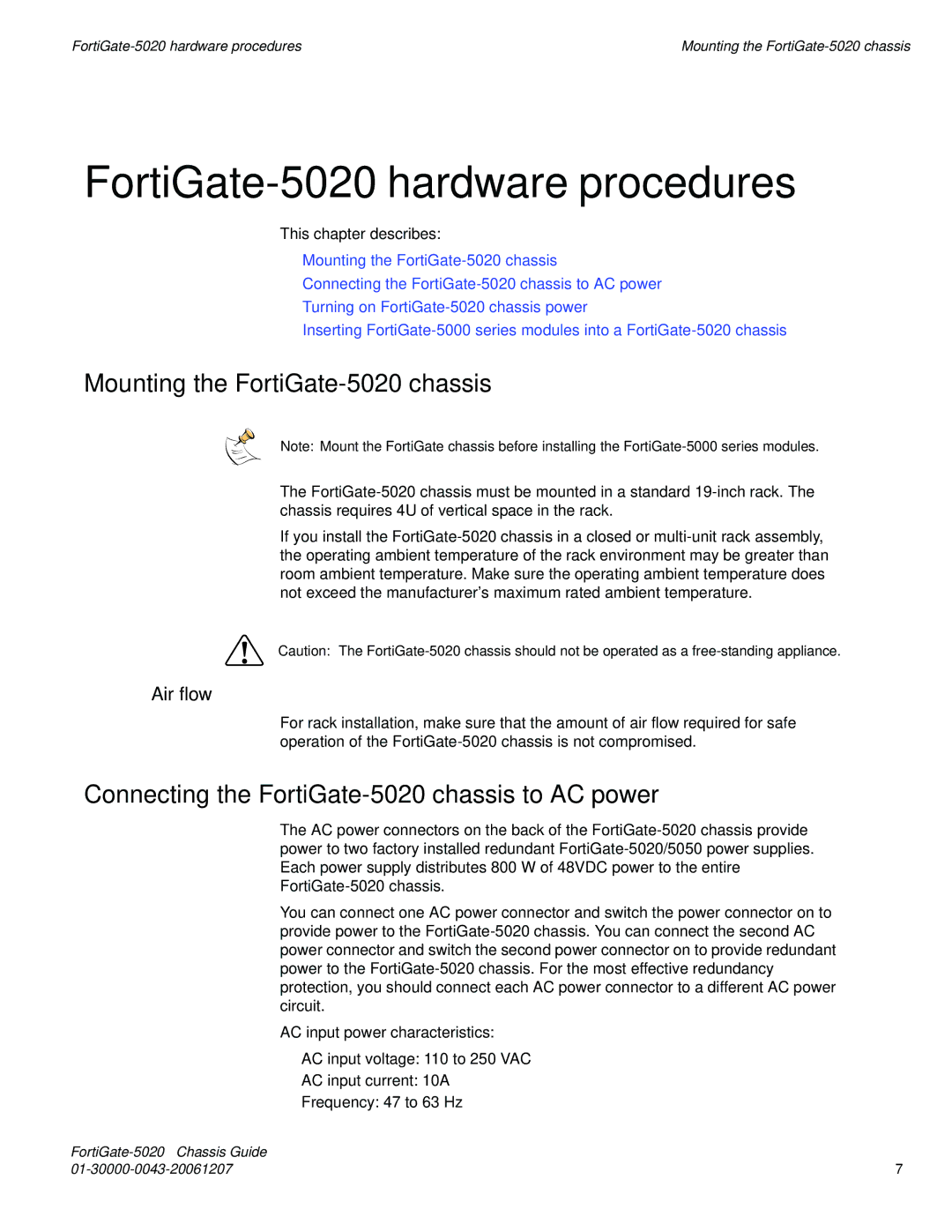| |
FortiGate-5020 hardware procedures | Mounting the FortiGate-5020 chassis |
FortiGate-5020 hardware procedures
This chapter describes:
•Mounting the FortiGate-5020 chassis
•Connecting the FortiGate-5020 chassis to AC power
•Turning on FortiGate-5020 chassis power
•Inserting FortiGate-5000 series modules into a FortiGate-5020 chassis
Mounting the FortiGate-5020 chassis
Note: Mount the FortiGate chassis before installing the FortiGate-5000 series modules.
The FortiGate-5020 chassis must be mounted in a standard 19-inch rack. The chassis requires 4U of vertical space in the rack.
If you install the FortiGate-5020 chassis in a closed or multi-unit rack assembly, the operating ambient temperature of the rack environment may be greater than room ambient temperature. Make sure the operating ambient temperature does not exceed the manufacturer's maximum rated ambient temperature.
Caution: The FortiGate-5020 chassis should not be operated as a free-standing appliance.
For rack installation, make sure that the amount of air flow required for safe operation of the FortiGate-5020 chassis is not compromised.
Connecting the FortiGate-5020 chassis to AC power
The AC power connectors on the back of the FortiGate-5020 chassis provide power to two factory installed redundant FortiGate-5020/5050 power supplies. Each power supply distributes 800 W of 48VDC power to the entire FortiGate-5020 chassis.
You can connect one AC power connector and switch the power connector on to provide power to the FortiGate-5020 chassis. You can connect the second AC power connector and switch the second power connector on to provide redundant power to the FortiGate-5020 chassis. For the most effective redundancy protection, you should connect each AC power connector to a different AC power circuit.
AC input power characteristics:
•AC input voltage: 110 to 250 VAC
•AC input current: 10A
•Frequency: 47 to 63 Hz
FortiGate-5020 Chassis Guide | |
01-30000-0043-20061207 | 7 |

